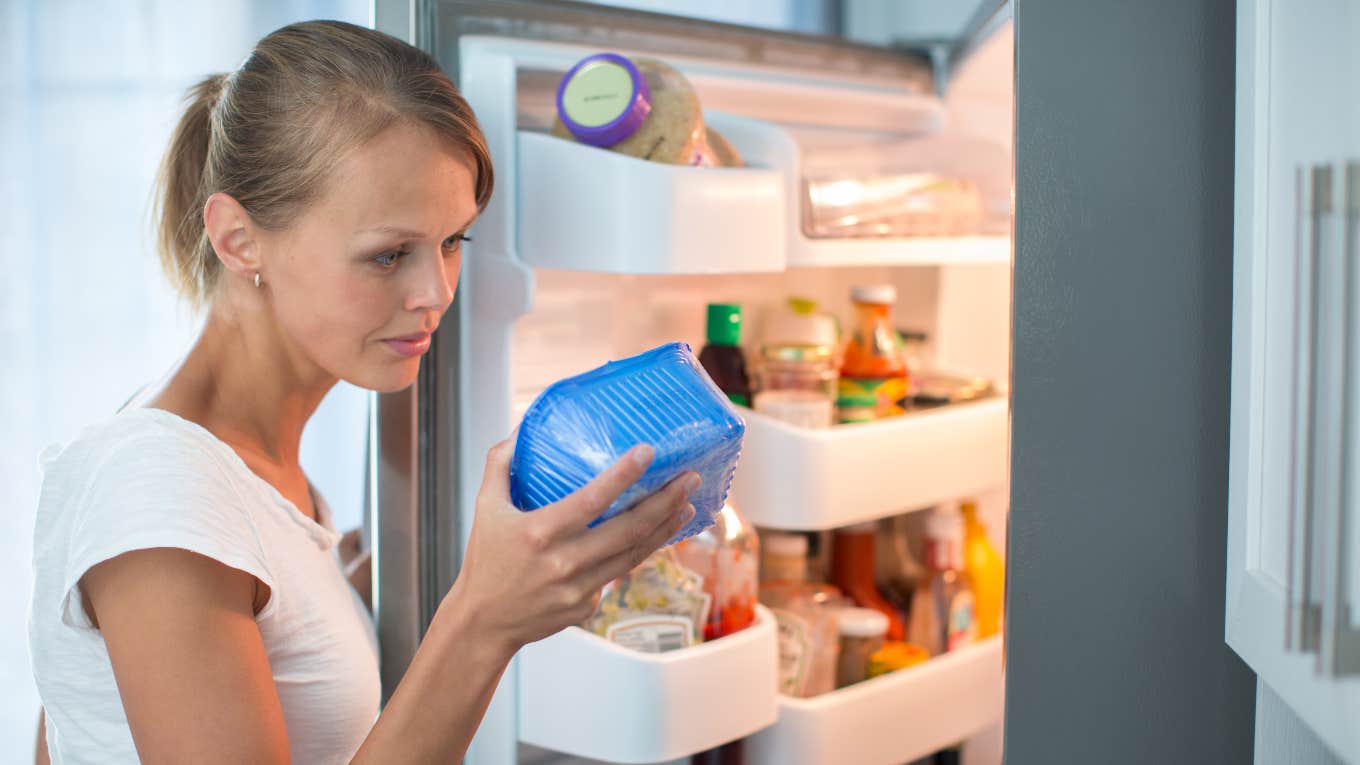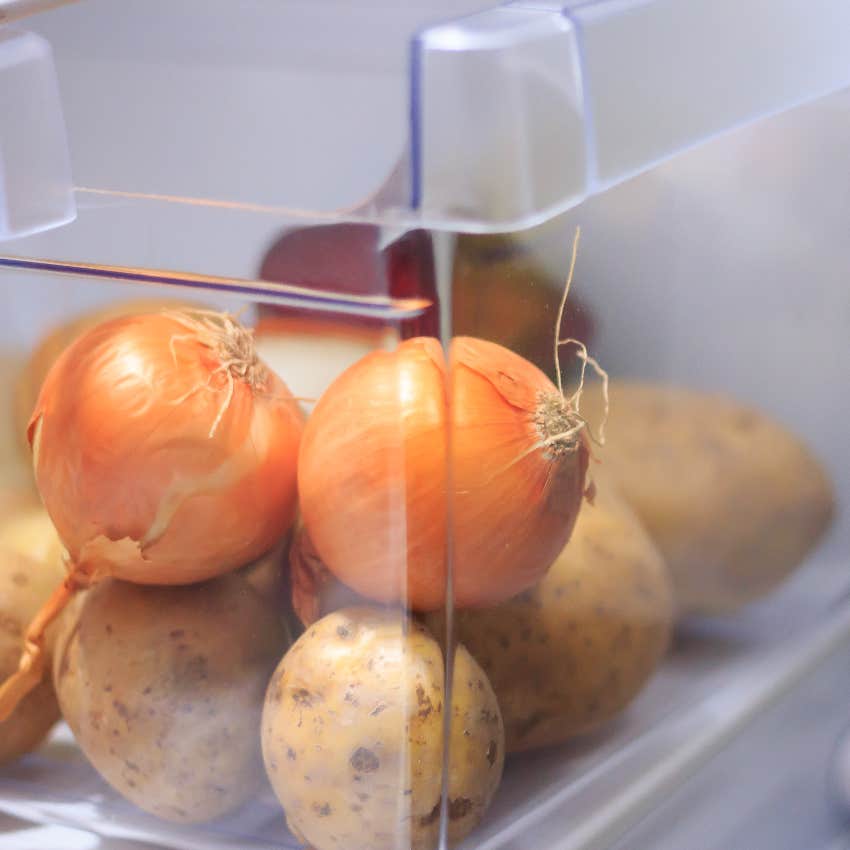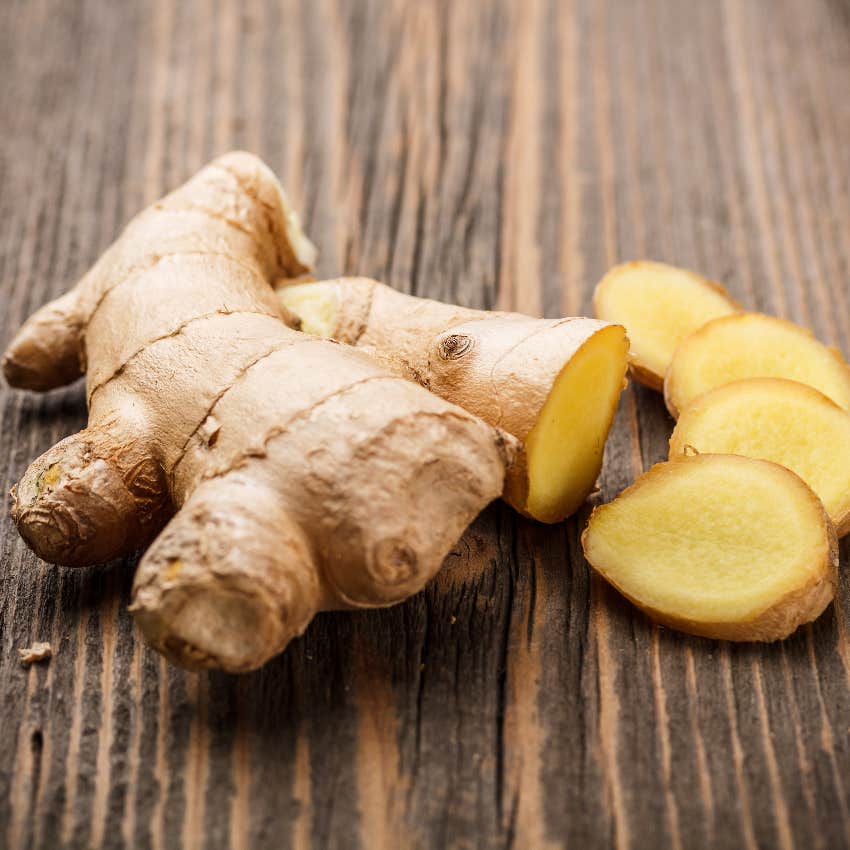4 Foods You Probably Didn't Know Turn Toxic When Refrigerated
Do you have any of these items in your fridge?
 l i g h t p o e t / Shutterstock
l i g h t p o e t / Shutterstock We often do things that are “less than ideal” for our health, sometimes without even realizing it. Particularly when it comes to cooking and cleaning, many people have habits that will be incredibly harmful in the long term.
Wellness and gut health expert, Dr. Dimple Jangda, uses her platform to share hacks and “PSAs” to help combat that blissful ignorance, specifically in the kitchen. In a recent post, she admitted that there are several foods people are unknowingly ingesting that end up being toxic to their overall well-being.
“Many people don’t know this,” she revealed,” but, there are several foods that should not go in your refrigerator … and people are still ingesting them.”
Here are four foods you probably didn't know turn toxic when refrigerated:
1. Peeled garlic
“Never buy peeled garlic and refrigerate it,” Dr. Jangda warned. “It starts catching mold very quickly. Garlic mold has actually been linked with cancer.”
As a “water-rich” crop, garlic is known to absorb moisture from the refrigerator air, making it more susceptible to growing mold. Not only are early stages of mold linked to “chest tightness, coughing, wheezing” and other symptoms upon ingestion but late-stage productions of “mycotoxin” have been linked with cancer.
Dr. Jangda recommended purchasing fresh garlic when possible and leaving the skin on until you’re ready to use it. According to Jangda, it’s also appropriate to leave the bundle of garlic out of the cold, storing it on a dry countertop instead of in a refrigerator drawer.
If convenience is most important to you, consider finding a minced jar alternative or “pickling” your own peeled garlic cloves in vinegar to store in the fridge.
2. Onions
Along with garlic, onions are often mistakenly placed in the refrigerator by the average consumer. Whether it’s an entire onion, or just a left-over section from cooking, onions are known to draw in bacteria from their environment.
“When someone is ill at home, we even place a slice of onion in the corner of the room to collect all the unhealthy bacteria,” Dr. Jangda shared.
 Photo: Ksenia_MA / Shutterstock
Photo: Ksenia_MA / Shutterstock
This means that an onion can be deceptively toxic. Whether or not there is mold visibly showing, it’s been soaking up all the bacteria from your fridge and holding onto it.
Research shows that many Americans only clean their refrigerators once or twice a year, so you can imagine just how much bacteria is unknowingly turning produce toxic.
3. Fresh ginger
“Ginger starts catching mold very quickly when you refrigerate it,” she informed viewers. “That has been linked with kidney and liver failures.”
 Photo: grafvision / Shutterstock
Photo: grafvision / Shutterstock
While fresh ginger is linked with health benefits that combat illness in your kidneys, improperly storing it can be harmful. As Dr. Jangda said in her video, the production of mold on fresh ginger is only stimulated by the cool temperature and moisture of the refrigerator, making it potentially toxic upon ingestion.
4. Cooked rice
“Lots of people have started keeping cooked rice in the refrigerator, because of the resistance to starch,” Dr. Jangda said. “However, rice is one of the ingredients that catches mold the fastest. If you’re going to refrigerate it — not longer than 24 hours.”
Other experts like Dr. Janine Bowring agree, saying that you should really “never be eating leftover rice.”
With the ability to grow mold very easily, leftover rice has the potential to turn toxic much faster in the refrigerator than other foods. In addition, Dr. Bowring said cooked rice has the potential to grow a specific bacteria called “b. cereus” that’s linked with food poisoning.
So, if it’s been a while since you’ve peeked into the depths of your refrigerator, now might be the time.
Consider finally purchasing that kitchen shelving or a produce basket, to ensure that these foods don’t end up turning toxic while stashed away in your refrigerator drawers.
Zayda Slabbekoorn is a news and entertainment writer at YourTango focusing on pop culture and human interest stories.
